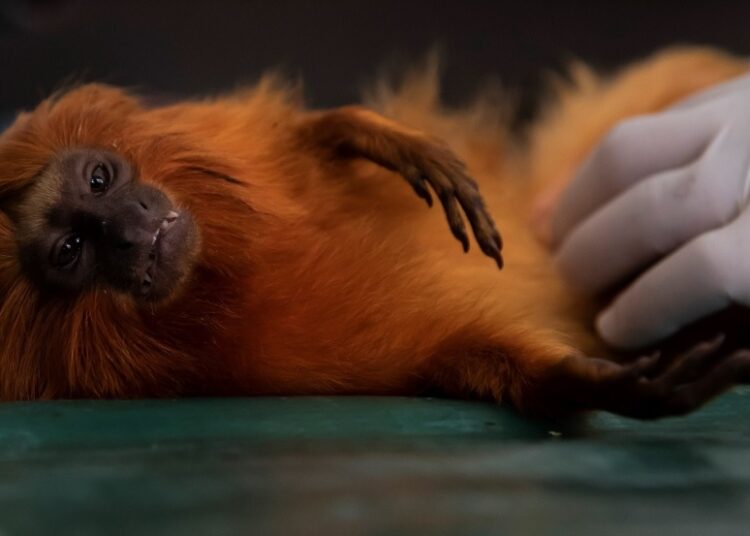SILVA JARDIM, Brazil — In a small lab nestled in Brazil’s Atlantic Forest, researchers with gloved hands and masked faces cradle four tiny golden monkeys so a veterinarian can delicately slide a needle under the thin skin of each sedated animal’s belly.
The next morning, biologist Andréia Martins brings them to the precise spot where they were caught.
She opens the wire cages and the monkeys dart out, hopping to a tree or the ground, ascending the canopy and regrouping as a family. They chatter noisily as they vanish into the rainforest.
This brief, strange encounter with humanity has been for the sake of their own health – and the survival of their kind, AP reported.
These endangered wild monkeys, called golden lion tamarins, have now been vaccinated against yellow fever, part of a pathbreaking campaign to save a threatened species.
“Vaccinating wild animals for the sake of animals, not to protect humans, is novel,” said Luís Paulo Ferraz, president of the nonprofit Golden Lion Tamarin Association.
When yellow fever began to spread in Brazil in 2016, resulting in more than 2,000 human infections and around 750 deaths, it also quickly killed a third of the highly vulnerable tamarins, the majority of them in just a few months.
So scientists in Brazil customized a yellow fever vaccine for the endangered monkeys.
The inoculation campaign started in 2021, and already more than 300 tamarins have been vaccinated.
The first such effort in Brazil — and one of the first worldwide — it raises vital questions about how far to go to save a species from extinction.






Discussion about this post